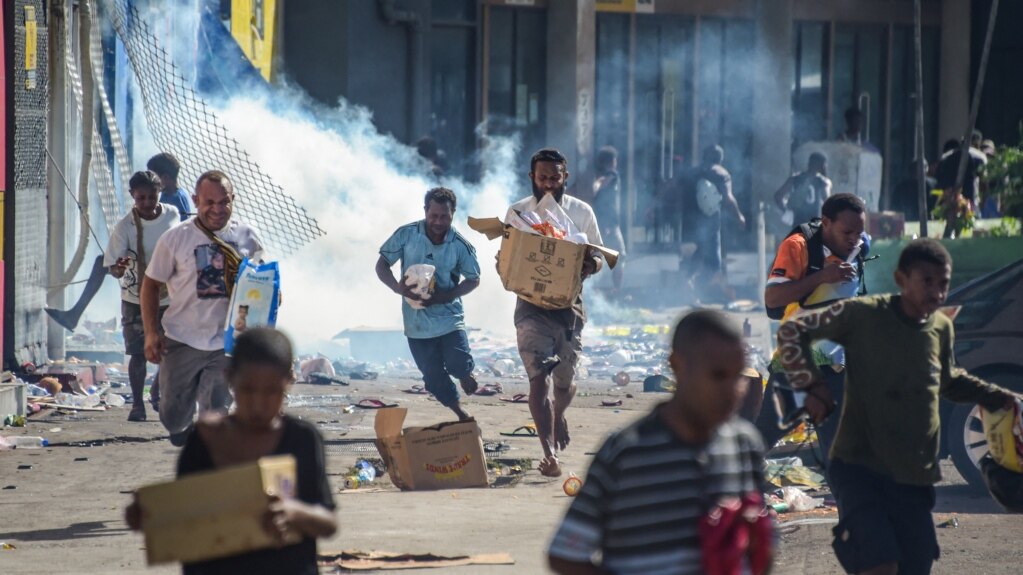The government of Papua New Guinea declared a state of emergency on Thursday after at least 16 people were killed in rioting.
After declaring the emergency, Prime Minister James Marape told a news conference that the government would take steps to prevent further “lawlessness.”
Speaking directly to the people of the South Pacific country, Marape said, "This is your country as much as it's my country. Breaking the law does not achieve certain outcomes."
The unrest began Wednesday in the capital, Port Moresby, after hundreds of police officers, soldiers and other government workers walked off their jobs. The workers had discovered an unexpected pay cut. Government officials later said the reduction was a mistake — calling it a glitch. They said it would be fixed.
Australian state broadcaster ABC reported that at least 16 people were killed in the unrest. Rioting in Port Moresby killed nine people, while seven were reported dead in the northern city of Lae.
Local video showed thousands of people in the streets of Port Moresby, Reuters news agency reported. Many carried what appeared to be looted goods as black smoke rose over the city.
The French news agency AFP reported at least 25 people were treated with gunshot wounds at a hospital in the capital. In addition, at least six people were treated for knife injuries, AFP said.
Marape told reporters there was evidence that "organized rioting” had taken place. He promised the government would "secure democracy” and the “rule of law.” He said about 1,000 military troops were standing by to be deployed to areas experiencing further unrest.
Reuters reported that violence had eased in the capital Thursday. Many stores, banks and other businesses were closed as owners sought to repair property damage.
Australian Prime Minister Anthony Albanese said his government was watching the situation but had not received any requests for help. "We continue to urge calm at this difficult time,” he told reporters. Australia has in the past supported policing efforts in Papua and the two nations recently signed a security agreement.
Papua New Guinea is home to 10 million people and about 800 languages. Farming is an important industry, but the country also holds rich resources including gold and copper.
Tensions in the country have been rising along with unemployment and living costs. This has led to an increase in violent crime over the past year. Marape has said improving the security situation will help bring in more foreign investment.
I’m Bryan Lynn.

